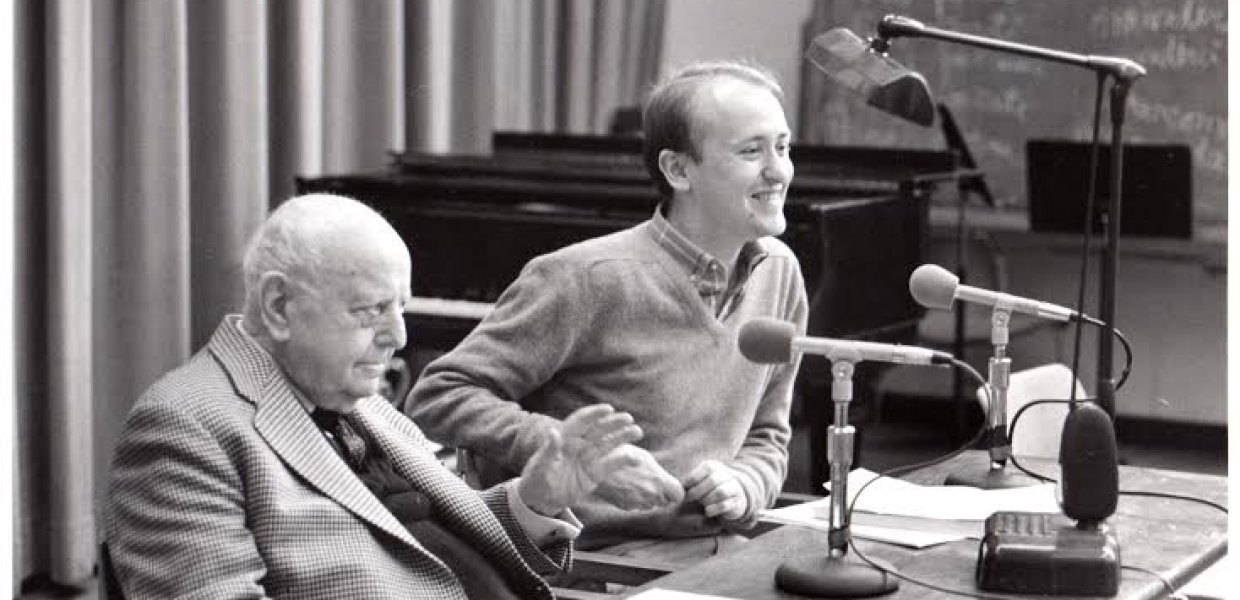Within art, literary work, music and journalism, there have always been voices that truly capture the essence of a topic or even given genres. These writers often deal with the difficult task of breaking down dense material for their audience but their elucidation allow for better comprehension of the subject at hand.
For Tim Page, professor at USC Annenberg and the USC Thornton School of Music, that writer was Virgil Thomson, a famous music critic of the last century. Thomson was full of wit, frankness and had a deep understanding of classical music, Page explained.
“He didn’t talk about classical music as if it were some kind of magical, mystery tour,” Page said. “He wrote about it with the gift of being able to discuss fairly complicated musical terms and musical ideas, but made them come across to a general audience."
Page’s latest book, “Virgil Thomson: Music Chronicles 1940-1954,” — recently released this past Thursday, Oct. 16 — is a collection of what Page considers to be Thomson’s best music critiques during part of his tenure as chief critic at the New York Herald Tribune.
As a former music critic himself, Page wrote for both the New York Times and the Washington Post. He explained how reading Thomson’s works of criticism was instrumental to his own professional writing.
“He set a standard,” Page said. “He was influential in the way he wrote, his directness, his humor and his lack of pretension. Those all had a big effect on my own work.”
The Wall Street Journal mentioned Page’s book and praised Thomson for being one of the most comprehensible and relevant critics since that time.
“An indispensable collection, perfectly edited by Tim Page, of the journalistic writings of the most important music critic of the 20th century. ... No music critic has ever been more readable,” Terry Teachout wrote.
Yet, this is not Page’s first book on the famous critic. In 1988, Page organized a book titled, “Selected Letters of Virgil Thomson,” but explained in Opera News that the project was much more controlled by Thomson, who was living at the time, who preferred to modify thoughts he had stated years ago.
“Like many topical commentators, [Thomson] didn't want his assessments to be proven ‘wrong’ by posterity, so he omitted some of his liveliest and most controversial reviews,” Page said.
This book however was published long after Thomson’s death, and when Page was selecting pieces for the book he realized that he did not want to leave much out, Page explained in the Opera News article.
Virgil Thomson, born in 1896 in Kansas City, Missouri and studied at Harvard University. In addition to his work of criticism, Thomson was an American composer who composed in almost every music genre. According to his biography by the Virgil Thomson Foundation, Thomson was fearless, blunt and considered a bull in a China shop. At times, the critic was funny, even if offensive, and was said to be the only critic who told the truth as he saw it in the music world.
Although Page is no longer a music critic, he still writes for the Washington Post and the New York Review of Books. He explained that as a professor he’s determined to make his students the best possible critics they can be.
That aspiration, more or less, extends beyond his students, however. Page explained that the book is not only meant to educate readers about Thomson, but it is also meant to shine light on the art of criticism.
“These days, so much of the time we just can get dopey shortcuts, like two thumbs up,” Page said. “But really good criticism is an art in itself, and even if you’ve never heard these artists or composers, with Virgil you can learn a lot and you’re also amused.”
Read Page's excerpt here (credit: Estate of Virgil Thomson).

